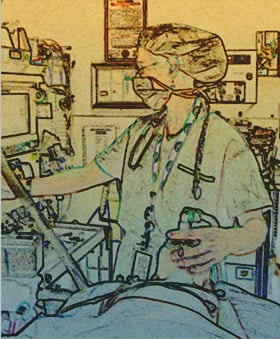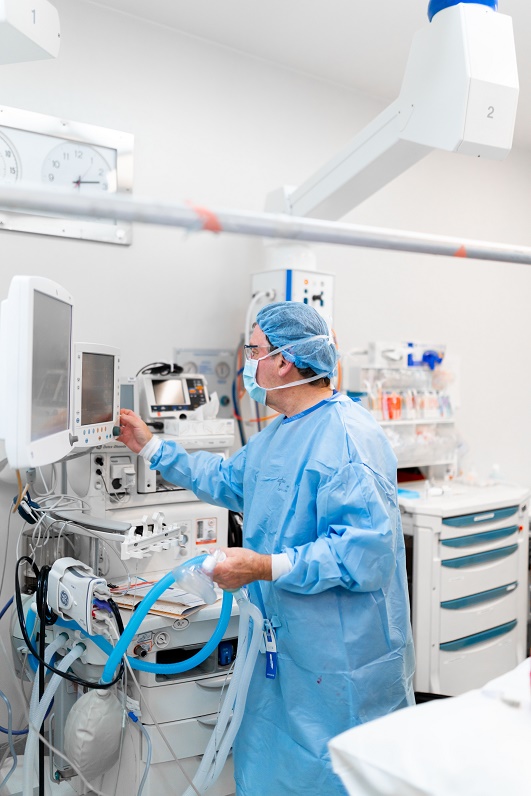

Safeguarding Your Surgery


The Vital Role of your doctor. What You Need to Know and Share for a Successful Procedure. In Australia and most Commonwealth countries, the doctor who will care for you during your surgery is known as an Anaesthetist. In the United States - he or she in known as an Anesthesiologist - to distinguish the medical specialty from nurse anesthetists.
Anaesthetists are medical doctors who specialize in anaesthesia, pain and critical care medicine, and work with your surgeon and the medical team to develop and administer your anaesthesia care and pain management plan. This leadership and oversight of your anaesthesia care best ensures safe, high-quality, high-value care before, during and after surgery.
Whether you're having a routine procedure such as a colonoscopy or something more complex like heart surgery, your medical team is committed to ensuring a safe and successful outcome. But you also can play an important role in making your procedure as smooth and effective as possible.
Do you have a health condition such as diabetes or kidney disease?
Are you a smoker or over age 65 dealing with memory issues?
Maybe you use cannabis?
These and other issues can affect your anaesthesia care plan, and are important to share with your doctor before your procedure. Your safety is your anaesthetist's priority - in fact, anaesthesiology was the first medical specialty to recognize patient safety as a discipline.
You can aid your anaesthetist in creating a plan that is tailored to your specific surgery by being open about any pre-existing health conditions, habits and any medications or vitamins you take. Disclose all pertinent information regarding your health. Specialist Anaesthetists have a unique medical education and training to lead and navigate vital moments of care during surgery or other procedures, including any complications that might arise. When you meet with your anaesthetist before your procedure, you will be given an opportunity to discuss your health and address any concerns.
The following are suggested tips for making the most out of this important conversation:
Talk about your health and share any information that you may have about health conditions such as diabetes, kidney disease, heart disease, high blood pressure or lung disease. Even issues that seem minor, such as snoring or allergies, can influence your care.
List your medications and supplements. Certain medications can interact with anaesthesia, so let your doctor know what you are taking, whether an injection for weight loss or a cholesterol drug. Don't forget to include over-the-counter drugs, vitamins and supplements.
Be honest about smoking and cannabis use. Let your anaesthetist know if you are a cigarette smoker because smoking can raise the risk of anaesthesia-related complications. Try to quit before your procedure; the earlier, the better. Cannabis use, including edibles, can affect the level of anaesthesia you need during surgery, as well as the type of pain medications you need after surgery. It also raises your risk for nausea and vomiting and may increase postoperative pain. Sharing this information is crucial to your safety.
Ask about your risk of postoperative delirium. If you are 65 or older or have a history of memory issues, you may be at increased risk for postoperative delirium, which can cause confusion, memory problems or agitation. Let your anaesthetist know if you have experienced these problems, including after having anaesthesia in the past. Learn more about how age can increase your risk and what you can do about it.
Bring a list of any questions you have, such as those pertaining to the details of the procedure, what kind of anaesthesia you'll receive, possible side effects and pain management strategies. If you're nervous, share your concerns - your anaesthetist is there to provide information and reassurance. Taking these steps not only helps your your doctor deliver the safest and most effective care for you, but also can help you feel more confident and informed going into surgery.
